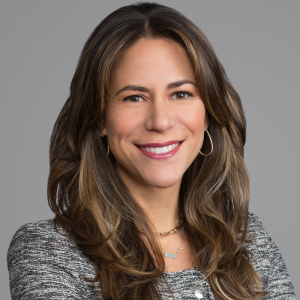Answering the Rallying Cry for Women in Investment Management
Guest Contributed by Rebecca Fender
“We’re stuck.” That was the consensus view from the group of women CFA Institute gathered nearly two years ago consisting of past and present members of our governing board. “Stuck” because women comprise a mere 18% of CFA Institute members—a number that has not changed for years and lags other professions.
These prominent industry leaders were disappointed in the lack of progress for women in the investment industry over their careers, and the assumption that it would fix itself has proven to be flawed.
But now things are beginning to change. Our research on gender diversity shows that 76% of investment professionals and 55% of institutional investors desire more gender diversity in the industry. People recognize that cognitive diversity—having different perspectives—is important for team construction and leads to more successful outcomes when tackling complex tasks. Teams need to seek collective intelligence (C factor), which research by Anita Woolley suggests is correlated with the average social sensitivity of group members, conversational turn-taking, and the proportion of women in the group. As a global organization, we see the many dimensions of diversity, but women are the universal diversifier: in every market, women are under-represented in finance compared to their participation rate in the workforce.
Consequently, senior leaders in the industry are looking for guidance on how to recruit and retain more women. While this is a long-term effort, we are starting to see progress that suggests change is afoot. Here’s how you can take advantage of these changes to advance your finance career.
- The network of women in finance is growing, so use it!
As a subscriber to The Glass Hammer, you already know that the power of your professional network is key to long-term success. Think of it as “visibility is validity.” For instance, showcasing successful women at all our events and bringing more women into leadership roles in our organization lets younger women see finance as a fulfilling career. Furthermore, women will make up 30% of our board by September, and our new initiative – Women in Investment Management – has inspired our female members to connect with their local societies, join activities and broaden their networks.
- Behavioral finance has introduced us to the idea of biases
Many of the challenges women have faced in the industry over the years relate to cultural issues that involve unconscious biases. Consider this: an article in the Journal of Applied Psychology found that when mixed-gender groups reported success on a project, men were more likely to get credit than women if attribution was not specifically given. People fill in gaps when they don’t have full information.
Similarly, it is easier to hire people who are like you (affinity bias), and deviating from this seems riskier, though we would rarely think of it that way. This makes it more difficult for women to break into male-dominated fields.
We often use these biases as shortcuts, without even realizing it, but these can be misleading. For example, we may expect men to be more competitive and risk-seeking than women, but this is in part because those in the majority feel more in control and so perceive fewer actions to be risky. A study by Gneezy, Leonard, and List showed that in matriarchal societies women are more likely than men to be risk takers. Recent research by Adams, Barber, and Odean showed that women in investing are more achievement oriented than men, though the reverse is true in the general population. Bottom line: question your assumptions and realize we all have biases.
Simple changes to meeting dynamics and addressing other day-to-day biases can add up to an unlevel playing field over time, but with an openness to recognize these we can work toward progress together. In a Financial Times article earlier this year, Anne-Marie Slaughter offered five specific ways to improve meetings, including making sure people aren’t interrupted, and asking a man to “do the office housework” like taking notes.
- Education can be an equalizer
Credentials show an employer you have the competency to succeed in the industry, and it can counter unconscious biases in the hiring process. In fact, Morningstar has cited the CFA charter as a qualification that women may find especially helpful in their career advancement in finance. Yet, while our research confirmed that most women and men in the industry made career decisions during their university years, a study by Mercer showed that many female students are unaware of career options in investment management.
Be sure to seek all available resources throughout your education. This may be programs affiliated with your university or scholarship and research opportunities like those offered through our University Affiliation Program. It’s important that both professors and students try to bridge this awareness gap.
In summary, the trend is positive, but success is not guaranteed. This is an exciting time for women in the investment management industry—employers are eager to hire women and help them excel. Take advantage of the changes happening now to make an impact. We are the future of finance.
Rebecca Fender, CFA, is head of the Future of Finance initiative at CFA Institute, a long-term global effort to shape a trustworthy, forward-thinking investment profession that better serves society. Prior to joining CFA Institute, Ms. Fender was a vice president at BlackRock working with pension funds and endowments, and she also worked at Cambridge Associates, where she published research about manager selection. She earned her undergraduate degree in economics from Princeton University and holds an MBA from the Darden School at the University of Virginia. Future of Finance publications include From Trust to Loyalty: A Global Survey of What Investors Want, and Gender Diversity in Investment Management: New Research for Practitioners to Close the Gender Gap. Previously, Ms. Fender also served as the director of the flagship CFA Institute Annual Conference.











